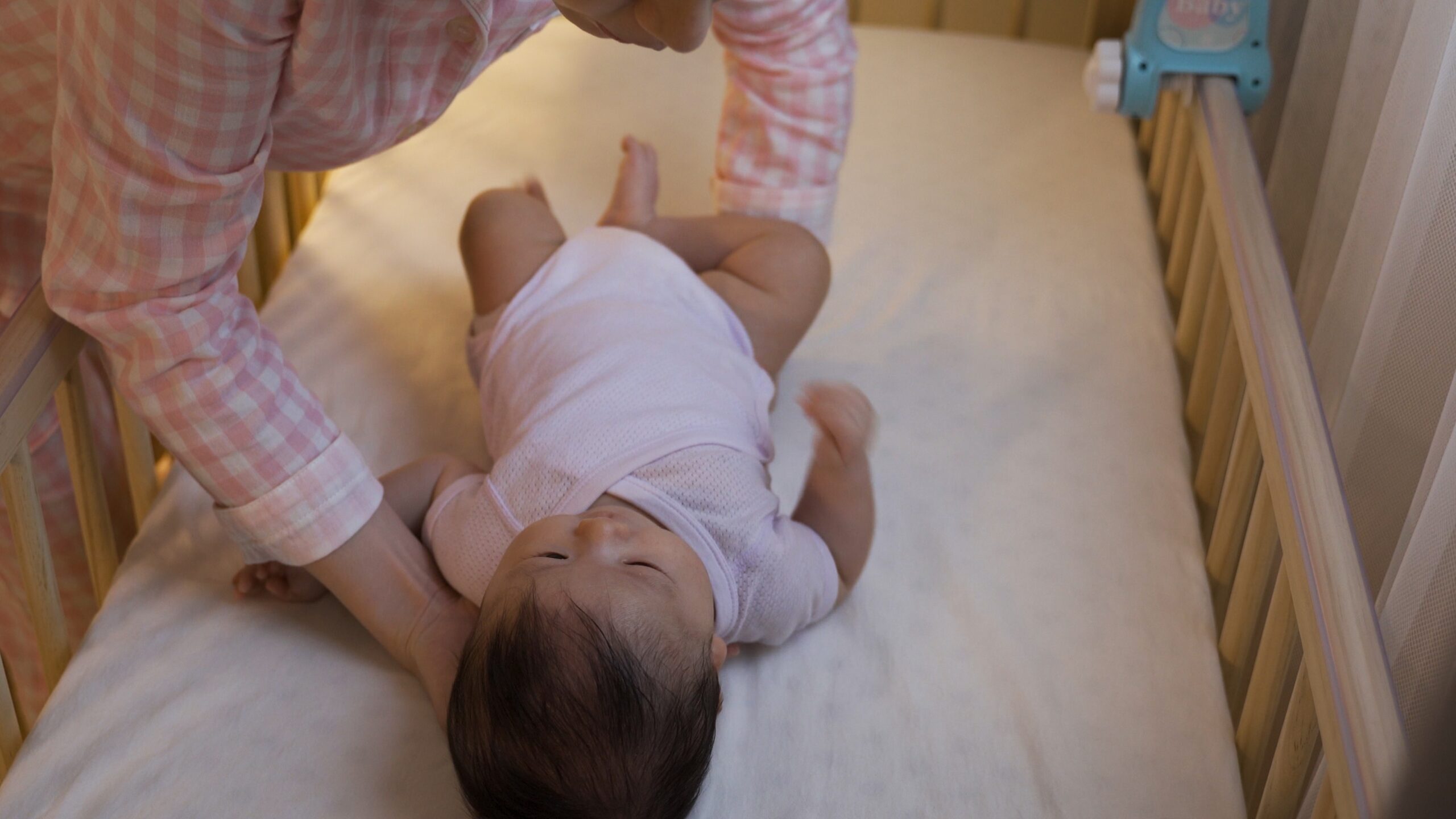Last Updated on October 22, 2024 by Mandy Gurney
Why Your Baby Stays Awake for Long Periods at Night: Causes and Solutions
As a parent, you may be wondering why your baby is awake for long periods during the night. While every baby is unique, several common factors might contribute to their extended wakefulness. Understanding these factors can help you better manage your baby’s sleep patterns and ensure that both you and your little one get the rest you need.
Developmental Milestones:
As babies grow, they often reach developmental milestones that can temporarily disrupt their sleep. Learning new skills like sitting, crawling, or standing can cause them to wake up and want to practice these new abilities.
Sleep Onset Associations:
When a baby is used to specific conditions or methods to fall asleep, such as being rocked or held, they may need the same conditions to fall back asleep when they wake at the end of a sleep cycle. Without these familiar sleep associations, they might wake up fully and need assistance to return to sleep. As morning approaches, the reduced levels of sleep hormones like melatonin and adenosine make it harder for babies to fall back asleep, potentially keeping them awake for extended periods, sometimes even hours.
Hunger or Thirst:
Babies, especially younger ones, might wake up because they are hungry or thirsty. Nighttime feedings are common in infants under a year, but hunger can still occasionally wake older babies and toddlers too.
Overtired and Awake:
An overtired baby often struggles to settle down for sleep. They might become dysregulated, fussy, irritable, and harder to soothe. This restlessness can prolong the time it takes for them to fall asleep initially and may lead to more frequent awakenings throughout the night.
Discomfort or Illness:
Discomfort from teething, nappy rash, illness, or other physical discomforts can keep a baby awake for extended periods. Conditions like ear infections, colds, or reflux can disrupt their sleep.
Daytime Sleep Patterns:
Having too much daytime sleep can affect nighttime sleep. All babies have different sleep needs; the key is to get the right balance for your baby between daytime naps and nighttime sleep. If your baby is awake for long periods in the night and is happily awake, wanting to play, they may be having too much sleep in the day.
Nighttime -how much sleep should my baby have at night:
Everyone has different sleep needs, and some of us are genetically determined to need less sleep than others. Understanding your baby’s unique sleep needs can help address and reduce those long periods of wakefulness during the night.
Hoping that your baby or young child will sleep for 12 hours overnight is usually unrealistic; the average overnight sleep needs for this age group are 10 to 11 hours, with or without a feed.
My baby is content happily awake in the night and doesn’t seem tired:
If your baby is awake and content and happily “chatting” or playing, they may be spending too long in bed and as a consequence have developed a “split night,”. This is called low sleep efficiency.
Sleep efficiency measures how much time is spent asleep compared to the total time in bed.
- High sleep efficiency means most of the time in bed is spent sleeping, which indicates good sleep quality.
- Low sleep efficiency suggests frequent awakenings or difficulty staying asleep.
To calculate sleep efficiency, compare the total time your baby is in bed to the time they are asleep. For example, if your baby is in bed for 12 hours but only sleeps for 10, they have low sleep efficiency.
To improve sleep efficiency and reduce nighttime wakefulness, adjust your baby’s schedule so that the time they spend in bed matches their actual sleep needs, such as 10 hours.

To help manage and reduce extended wakefulness at night:
- Establish a consistent bedtime routine: A predictable sequence of calming activities can signal to your baby that it’s time to sleep.
- Have a regular wake time in the morning for your baby.
- Consider how much sleep is appropriate for your baby overnight.
- Monitor and adjust daytime sleep: Ensure your baby has an appropriate balance of naps during the day to avoid too much daytime sleep impacting their night.
- Create a conducive sleep environment: Ensure your baby’s room is dark, quiet, and at a comfortable temperature.
- Encourage self-soothing: Gradually ease your baby towards settling to sleep without help from you at bedtime.
- Check for discomfort or illness: Address any physical issues that might be causing discomfort and disrupting sleep. You may need to discuss this with your health professional.
If the persistent sleep issues continue, we’d love to be able to offer you some guidance. Please get in touch and we’ll discuss how we can help.
Written by Mandy Gurney RGN.RM.DipHV.
0 Comments






